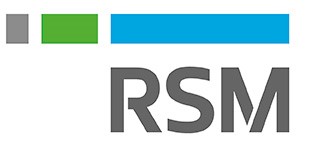This article provides an update on an article we wrote earlier this year about “potential challenges to cost sharing exemption arrangements”.
The cost sharing exemption exists to give a VAT relief to organisations that make exempt and/or non-business supplies. These organisations incur VAT as an ultimate cost on some, or all their purchases, as they cannot recover all VAT incurred accordingly.
Two or more such organisations can come together to purchase services on a cooperative basis. This requires the creation of a new entity – a cost sharing group (CSG). The CSG then supplies members with services at cost price.
The CSG is a separate taxable person from its members and is therefore able to make supplies for VAT purposes to them. These supplies will be exempt from VAT if the following conditions are met:
- The CSG must be an independent entity supplying services to its members.
- The members must carry on activities which are either exempt from VAT or non-business.
- The services must be directly necessary for the members exempt or non-business activities.
- The CSG must only recover the exact cost of the services from its members.
- The application of exemption must not cause a distortion of competition.
Update on HMRC’s position
In 2021 HMRC challenged some housing associations where the CSG entity was in a VAT group with one of the members. HMRC were concerned that there was a ‘double’ benefit by being in two types of grouping arrangement (VAT group and CSG) and that this resulted in a distortion of competition. Namely that the recharging of costs from the housing association to the CSG benefited from being disregarded – something that would not be available to a third party provider. There was also a secondary concern that ‘profit’ may be being extracted from the CSG through group recharges.
We are aware that HMRC withdrew a previous non-statutory clearance given to a housing association where the CSG and it were in the same VAT group. HMRC contended that exemption was not applicable as the relevant criteria had not been met and issued a retrospective assessment. Although the back dated assessment was subsequently withdrawn by HMRC, this was based on a technicality as taxpayers are entitled to rely on a non-statutory clearance, so in effect the impact of any withdrawal can only be prospective. The end result, however, was that housing associations decided to discontinue the operations of the CSG, as the tax at stake going forward was not sufficient to warrant pursuing a case through the courts.
So where do we go from here?
It is our opinion that CSGs are still a valid relief mechanism, particularly where entities may already be working in close collaboration with other entities. Where these strong bonds and relationships already exist it can often be a natural next step to set up a CSG.
Based on HMRC’s current stance for them to provide a non-statutory clearance on any CSG arrangement, it is likely that they will expect that:
- If the CSG is required to be VAT registered that it does so in its own right
- The CSG can demonstrate that recharges to members for the support that they receive is based on actual costs.
- Any recharges by members to the CSG are also at cost.
To minimise VAT leakage the CSG will need to have all the human resources (employees) it needs to function.
The members and CSG will need to invest time in understanding the cost base and put in place an appropriate methodology to ensure that all recharges are based on actual costs.
But where does that leave housing associations that wish to, or need to, include the CSG in a VAT group with one of the members as they will need to overcome the distortion of competition hurdle.
The HMRC VAT manual provides some useful insights(CSE4120):
“There is a distortion of competition where there is a genuine risk that the VAT exemption itself would give rise to distortions of competition. This was confirmed by the judgment in the case of Taksatorringen (case C-8/01) and remains the position after 31 December 2020. In that case, the Advocate General considered that exemption from VAT should not be refused simply on the grounds that the exemption might produce distortion of competition, unless it appears with at least a high degree of probability that it would of itself exclude independent operators from carrying on business in the market in which the group is operating."
Whether or not there is a distortion of competition is a matter of fact. Distortion of competition has been examined in a handful of cases:
- City of Westminster (VTD 3367) – the Tribunal considered whether the provision of very basic accommodation for homeless men could be viewed as a statutory activity, and if so if that could give rise to a distortion of competition. The Council was able to demonstrate that it had a statutory obligation to provide the accommodation under the National Assistance Act 1948. Whilst the Tribunal accepted that the accommodation was similar to that provided in hotels, inns and boarding houses, it concluded that there was in reality no private sector competition for the particular type of accommodation provided by the council. Consequently, no distortion of competition arose from the supply being treated as non-business.
- Rhondda Cynon Taff County Borough Council (VTD 16496) – this case considered the operation of cemeteries by a local authority. It was found that the statutory conditions under which local authorities operate their cemeteries, for example The Local Authorities’ Cemeteries Order 1977 (SI 1977/204), meant that they are provided under a special legal regime. Furthermore, although there are nearly 3000 cemeteries in the United Kingdom, few are privately operated. Consequently, it does not distort competition for local authority cemeteries to be treated as non-business.
- Isle of Wight Council (CJEU) (C 288/07) – the Courts were asked to consider if the provision of on-street parking by a local authority resulted in a distortion of competition and as such fell within the scope of VAT. The CJEU ruled that competition between public bodies and private operators must be considered in terms of the activity that is taking place and that this must be evaluated in national terms rather than in relation to any local market. This meant that it must be decided in general and not by reference to the environs of a local area. The CJEU also ruled the phrase ‘would lead to significant distortions of competition’ should be interpreted as follows:
- ‘would lead to’ is ‘to be interpreted as encompassing not only actual competition, but also potential competition, provided that the possibility of a private operator entering the relevant market is real, and not purely hypothetical’.
- ‘significant’ was to be understood as meaning that the actual or potential distortions of competition must be more than negligible.’
What is also interesting is that the CJEU indicated that the burden of proof lies with HMRC and not the entity to show that significant distortion of competition exists.
Notwithstanding the fact that CJEU stated that the burden of proof is on HMRC, given HMRC’s current stance we recommend that organisations who are considering establishing a CSG undertake an assessment of the market regarding the services to be delivered by the CSG to its members to assess the level of competition, and determine if the establishment of the CSG would have an impact on commercial organisations operating in that space that could result in a significant distortion.












